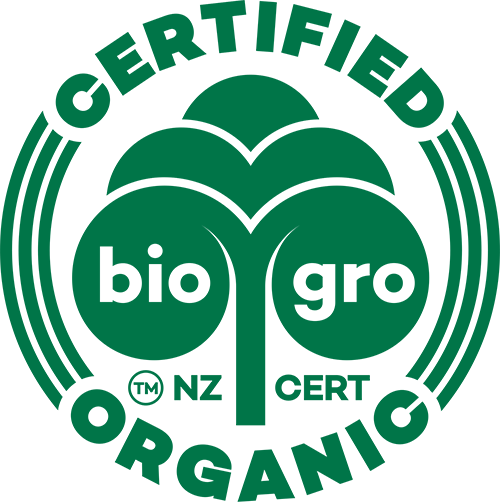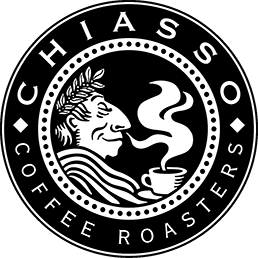
Why Organic Certification Matters in the NZ Coffee Scene
Share
For over eight years, Chiasso Coffee's Dolce and Pascolo blends have proudly carried BioGro certification—New Zealand's leading organic standard. This isn't a marketing add-on. It reflects a deep-rooted philosophy: sourcing coffee that respects ecosystems, supports ethical practices, and meets genuine organic standards from farm to cup.
Yet across the country, many roasters still offer coffee labeled "organic" without formal certification. That might sound harmless—but it has serious implications.
What Certified Organic Actually Means
We all know the basics of organic farming—which, at its core, means farming without synthetic chemical inputs. That includes avoiding artificial fertilizers, pesticides, herbicides (think Glyphosate), and fungicides. Instead, organic producers rely on natural alternatives like compost, crop rotation, biological pest control, and soil-building practices that support long-term ecological balance.
In coffee farming, this translates to beans grown in cleaner soils, processed without chemical residues, and handled with a level of care that respects both the environment and the communities involved. At Chiasso, this philosophy is evident in every certified batch of Dolce and Pascolo—where "organic" is more than a label: it's a commitment that enhances both flavor clarity and quality.
However, less well known is that true organic certification involves robust documentation and independent audits. At Chiasso, this includes:
- Verified sourcing from certified organic growers
- Clean and separated processing throughout the supply chain
- Full traceability and paperwork reviewed annually by BioGro
In short: it's a system of accountability. Without it, "organic" can become a vague descriptor—open to misinterpretation or even misuse.
A Hidden Concern: Methyl Bromide at the Border
Green coffee beans entering New Zealand that are not certified organic may be subject to treatment with Methyl Bromide—a fumigant used by border control to eliminate pests. While effective, it's also an ozone-depleting chemical linked to significant environmental and health concerns. It is controlled under the Montreal Protocol on Substances that Deplete the Ozone Layer, according to New Zealand's Ministry for Primary Industries.
The issue? This treatment is invisible to consumers. Coffee treated with Methyl Bromide can still be marketed as "organic" by some businesses if they haven't committed to certification. This undermines trust and clarity in the marketplace.
Toward a National Organic Standard
To combat misuse and reinforce consumer confidence, New Zealand is working toward implementing a National Organic Standard. Once passed, this will:
- Clearly define "organic" under New Zealand law
- Require certification for businesses making organic claims
- Align New Zealand's standards with international expectations
This is a welcome step forward. It will protect both conscientious consumers and businesses who invest in doing things the right way.
Why It Matters to Us
At Chiasso, we've always focused on quality that runs deeper than taste. Organic certification is part of that integrity—ensuring every cup of Dolce or Pascolo reflects a promise made and kept.
While we won't make bold health claims, our customers often describe a certain clarity in flavor, in sourcing, and in knowing their coffee comes from truly organic origins.
For consumers wanting to verify organic claims, look for certification logos from recognized bodies like BioGro, or ask your roaster for their certification details. In an industry where "organic" can be casually claimed but not always earned, certification makes all the difference.
This year marks our 8th consecutive BioGro organic certification renewal following a successful audit—reinforcing our commitment to genuine organic standards. In a landscape where organic claims are often unverified, we're proud to lead with transparency, integrity, and a deep respect for the craft of coffee roasting.
Sources:

